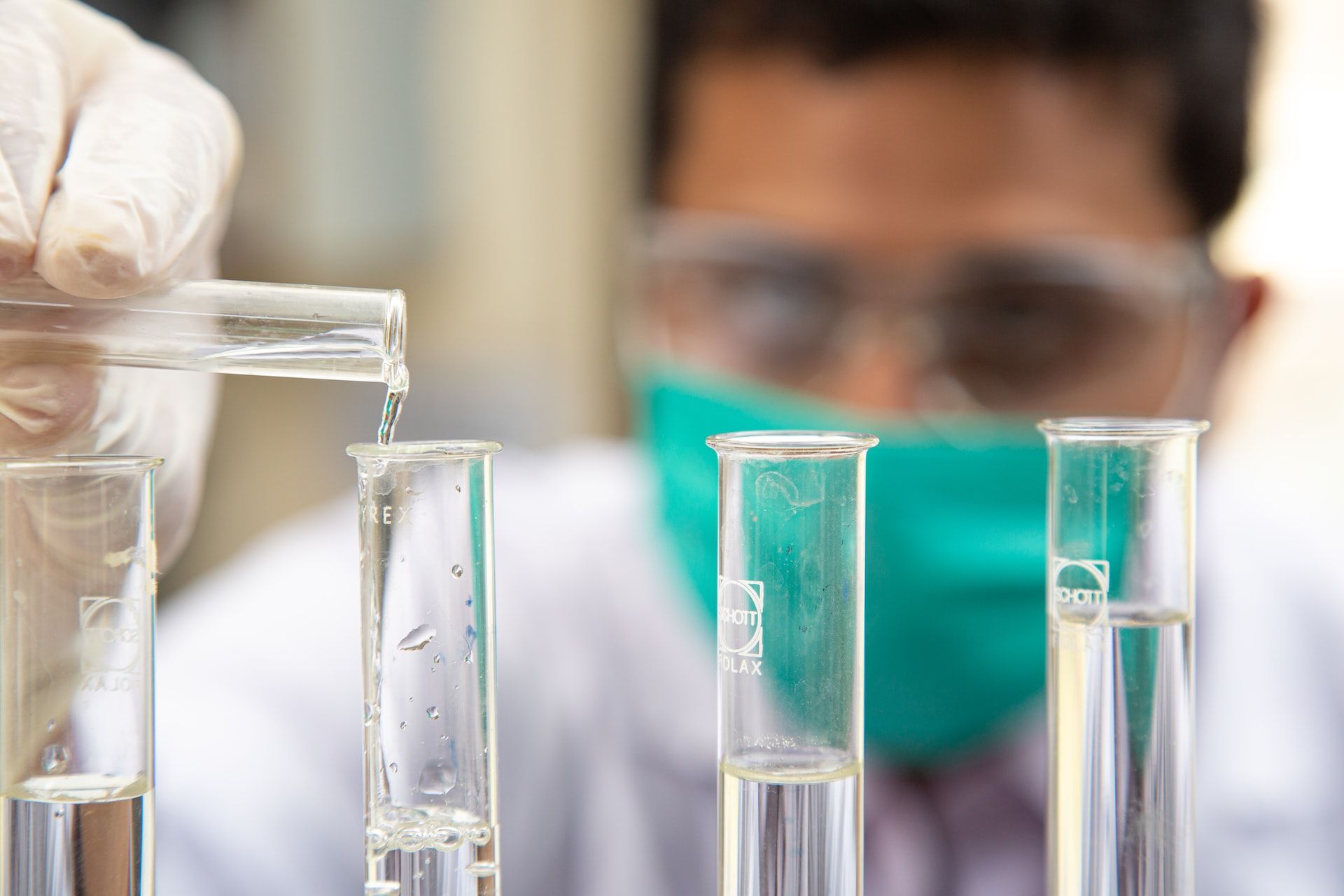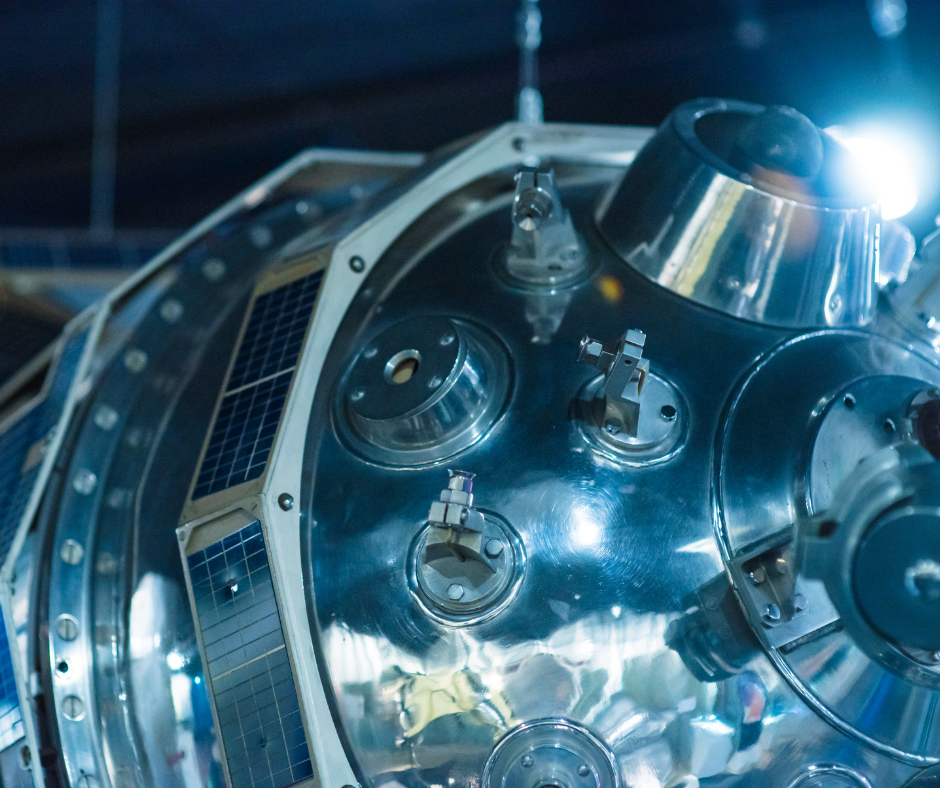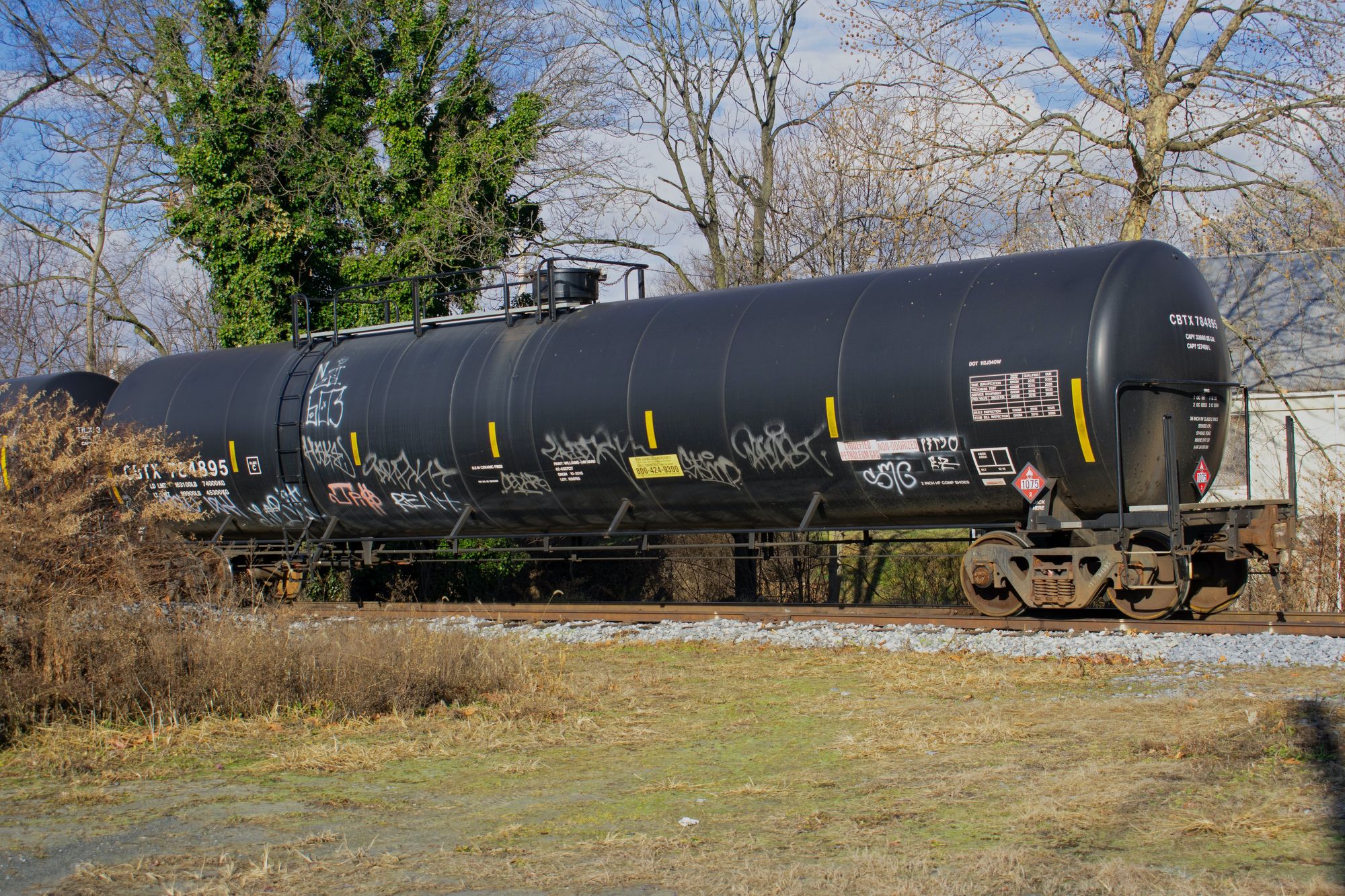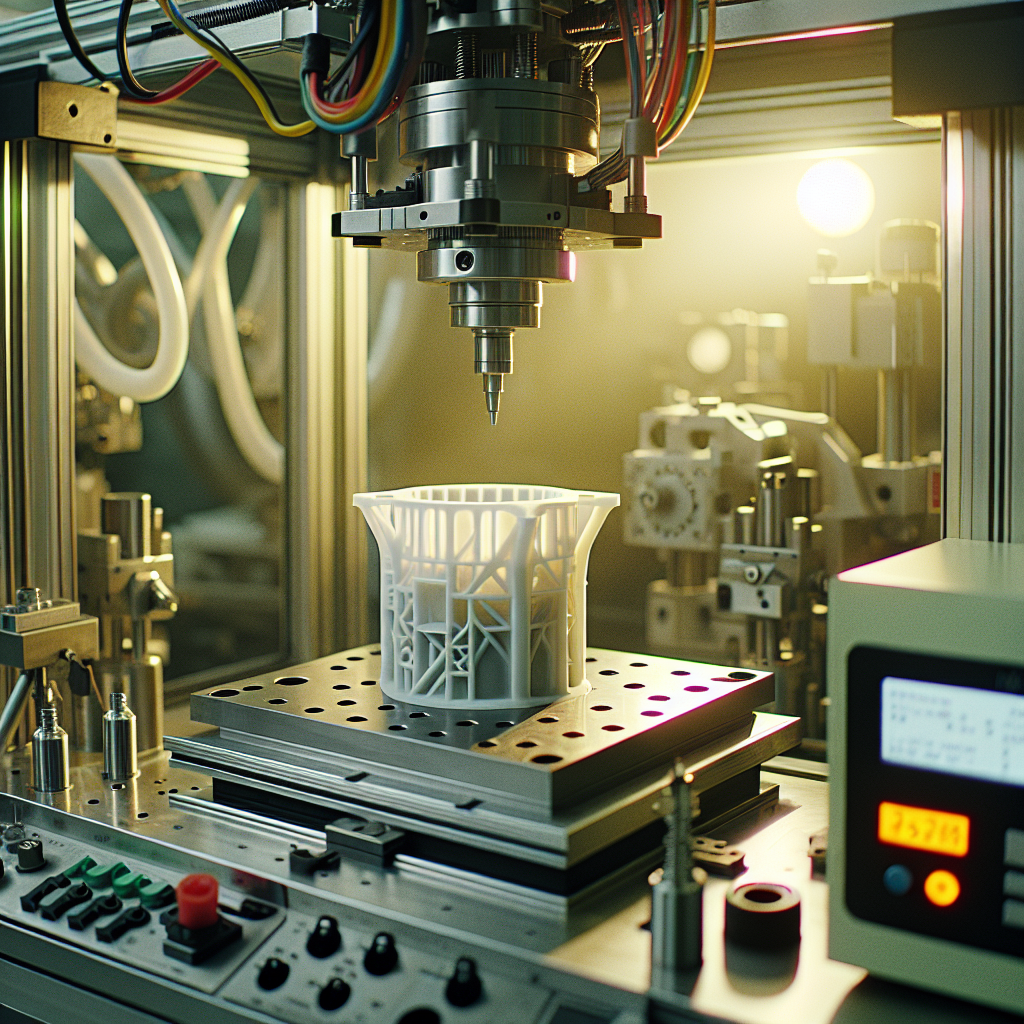The chemical manufacturing industry is a vital sector of the United States economy, contributing to various industries, including pharmaceuticals, energy, and agriculture.
In 2020, the industry generated over $553 billion in revenue and employed over 870,000 workers, with an average salary of over $87,000, according to the American Chemistry Council.
However, the industry faces several challenges, including high costs, production inefficiencies, and the need to adopt sustainable practices. One solution that is gaining popularity among chemical manufacturers is continuous manufacturing.
Continuous manufacturing is a process that involves the production of chemicals in a continuous flow, as opposed to batch manufacturing, which consists of the production of chemicals in discrete batches. In recent years, continuous manufacturing has gained traction in the pharmaceutical industry and has also shown potential in chemical production.
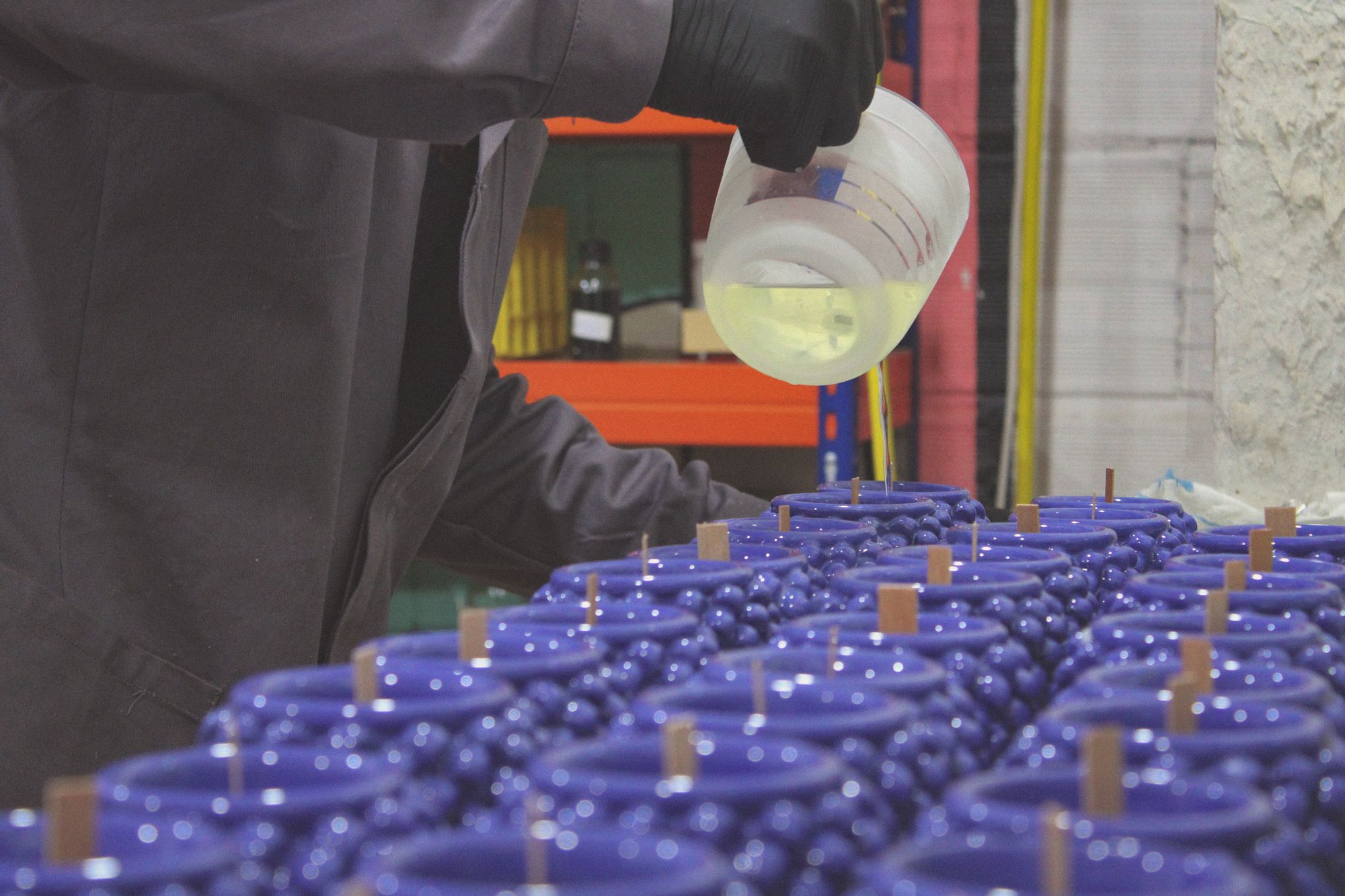
This article will discuss the advantages of continuous manufacturing for chemical production and how it can help address some of the challenges faced by the industry.
Here's what we shall cover in this post:
- Understanding Continuous Manufacturing in the Chemical Industry
- Advantages of Continuous Manufacturing for Chemical Production
- Sustainability Benefits of Continuous Manufacturing
- Importance of Process Design for Continuous Manufacturing
- Advancements in Process Monitoring and Control
- Implementing Continuous Manufacturing: Challenges and Solutions
- Conclusion
- Key Takeaways
Understanding Continuous Manufacturing in the Chemical Industry
Continuous manufacturing, also known as continuous flow manufacturing or process intensification, is a manufacturing process that involves the continuous production of chemical products rather than batch production. Here are some key points to help understand continuous manufacturing in the chemical industry:
- Continuous manufacturing is more consistent: Continuous manufacturing produces more consistent products than batch manufacturing, as the process is more tightly controlled and monitored. This can lead to higher quality products and fewer defects.
- Continuous manufacturing requires different equipment: Continuous manufacturing requires specialized equipment that is designed to operate continuously rather than in batches. This equipment can be more expensive than traditional batch equipment, but the increased efficiency and scalability can offset the cost over time.
- Continuous manufacturing requires a different process design: Continuous manufacturing requires a different process design than batch manufacturing, as the process needs to be optimized for continuous operation. This may involve different process steps or the use of different raw materials.
- Continuous manufacturing can lead to faster time to market: Continuous manufacturing can lead to faster time to market for chemical products, as the process is more efficient and consistent. This can be particularly important for industries where speed to market is a key competitive advantage.
- Continuous manufacturing can be more complex: Continuous manufacturing can be more complex than batch manufacturing, as the process is more tightly controlled and involves multiple steps. This can require more advanced process control systems and more skilled operators.
Advantages of Continuous Manufacturing for Chemical Production
Here are some benefits of using continuous manufacturing for chemical production:
- Increased efficiency: Continuous manufacturing can significantly increase the efficiency of chemical production. By eliminating the downtime between batches, continuous manufacturing can increase equipment utilization and reduce waste, leading to lower production costs.
- Improved scalability: Continuous manufacturing is highly scalable and can easily accommodate changes in demand. This makes it ideal for chemical companies that need to increase their production capacity quickly in response to market demands.
- Enhanced process control: Continuous manufacturing enables better process control by allowing real-time monitoring and adjustments. This leads to increased consistency in product quality and reduced variability in production output.
- Reduced labor costs: Continuous manufacturing requires less operator intervention and monitoring than batch production, which can lead to lower labor costs.
- Reduced safety risks: Continuous manufacturing can minimize safety risks associated with manual handling and exposure to hazardous materials. Automation and closed systems in continuous manufacturing can reduce the risks of accidents and injuries.
- Improved product quality: Continuous manufacturing can improve product quality by ensuring more consistent production conditions and reducing contamination risks associated with batch processing.
- Faster time to market: Continuous manufacturing can help chemical companies to respond more quickly to market demand by reducing the time required to bring products to market. This can help companies to gain a competitive advantage by bringing new products to market faster.
- Environmental benefits: Continuous manufacturing can reduce environmental impact by minimizing waste and emissions and reducing the need for the transportation of raw materials and finished products.
Sustainability Benefits of Continuous Manufacturing
Continuous manufacturing is a process that involves the uninterrupted production of chemicals without the need for start-stop batch processing. This technology has several sustainability benefits, making it a preferable alternative to traditional batch processing methods. This section will explore some of the sustainability benefits of continuous manufacturing in the chemical industry.
- Reduced waste: Continuous manufacturing reduces waste by minimizing the need for cleaning between batches. On the other hand, batch processing requires equipment to be cleaned after each batch, which can generate significant amounts of waste. Continuous manufacturing reduces the amount of waste generated by eliminating the need for cleaning, making it a more sustainable option.
- Lower energy consumption: Continuous manufacturing requires less energy compared to traditional batch processing methods. The process of starting and stopping equipment in batch processing can consume a lot of energy, while continuous manufacturing runs continuously, using less energy overall. By reducing energy consumption, continuous manufacturing reduces greenhouse gas emissions and helps to mitigate climate change.
- Decreased water usage: Continuous manufacturing also requires less water compared to batch processing. In batch processing, equipment must be cleaned between each batch, which can require significant water. Continuous manufacturing eliminates the need for cleaning between batches, leading to reduced water usage and conserving this precious resource.
- Improved product quality: Continuous manufacturing technology can also help to enhance the quality of a product. By controlling the process parameters in real time, manufacturers can consistently ensure that the product meets the required specifications. This results in fewer production defects and less waste, leading to more sustainable production.
- Efficient use of resources: Continuous manufacturing allows for the efficient use of resources, such as raw materials and energy. By optimizing the production process, manufacturers can reduce the amount of raw materials and energy needed to produce the desired output. This not only leads to more sustainable production but also reduces the cost of production.
Importance of Process Design for Continuous Manufacturing
Here are some key points about the importance of process design for continuous manufacturing:
- Process design is critical for optimizing production efficiency. With continuous manufacturing, the process is designed to run continuously without the need for stops and starts, which can cause delays and waste resources. A well-designed process can maximize throughput and minimize downtime, resulting in increased productivity and cost savings.
- Proper process design can help ensure product quality and consistency. Continuous manufacturing allows for real-time monitoring and control of the production process, which can lead to better quality control. By designing the process with quality in mind, manufacturers can ensure that their products meet the desired specifications and are consistent from batch to batch.
- Process design is essential for safety and environmental considerations. Continuous manufacturing can be safer and more environmentally friendly than batch manufacturing methods. However, this requires careful consideration of the process design to minimize the risk of accidents and ensure compliance with regulations.
- Process design can help manufacturers identify and address potential issues before they become problems. By simulating the production process before implementing it, manufacturers can identify potential bottlenecks, inefficiencies, or safety hazards and make adjustments to the process design to address these issues.
- Finally, a well-designed process can provide a competitive advantage. By leveraging the benefits of continuous manufacturing and optimizing the process design, manufacturers can produce high-quality products more efficiently and cost-effectively than their competitors.
Advancements in Process Monitoring and Control
Process monitoring and control is an essential aspects of continuous manufacturing in the chemical industry. It refers to collecting and analyzing real-time data to ensure that the manufacturing process is performing optimally and producing quality products.
Over the years, significant advancements in process monitoring and control technologies have improved efficiency, cost-effectiveness, and product quality. This section will explore some of the advancements in process monitoring and control and their benefits.
Automation and Control Systems
Automation and control systems are critical for continuous manufacturing processes. They are designed to ensure that the manufacturing process runs smoothly and efficiently, with minimal human intervention.
Advanced automation systems can detect any abnormalities in the manufacturing process and make adjustments automatically to maintain optimal conditions. This technology reduces the likelihood of human errors and increases the consistency of the manufacturing process.
Real-Time Monitoring
Real-time monitoring is another essential advancement in process monitoring and control. It involves the use of sensors and other technologies to collect data on critical process variables such as temperature, pressure, flow rate, and pH.
This data is analyzed in real-time, allowing operators to make adjustments to the process in real time, reducing the likelihood of defects and ensuring that products meet the required specifications.
Predictive Maintenance
Predictive maintenance is a technology that uses data analysis to predict when maintenance is required to prevent equipment failure. By analyzing data collected from sensors and other monitoring tools, predictive maintenance can identify potential issues before they become significant problems.
This technology is beneficial for continuous manufacturing processes, where any unplanned downtime can be costly.
Artificial Intelligence and Machine Learning
Artificial intelligence (AI) and machine learning (ML) are two technologies that are transforming the chemical manufacturing industry. AI and ML algorithms can analyze large volumes of data in real time and make predictions about the performance of the manufacturing process.
By applying these technologies, manufacturers can identify patterns and anomalies in data that might not be visible to the human eye, allowing them to optimize the process further.
Cloud Computing
Cloud computing has become increasingly popular in recent years due to its many benefits, including scalability, cost-effectiveness, and ease of access. Cloud computing can also be applied to process monitoring and control, allowing manufacturers to collect and analyze data in real time from any location.
This technology allows manufacturers to monitor their processes remotely, making it easier to identify and resolve issues quickly.
Implementing Continuous Manufacturing: Challenges and Solutions
Continuous manufacturing has become increasingly popular in the chemical industry due to its advantages over traditional batch manufacturing processes. However, implementing continuous manufacturing is not without its challenges.
In this section, we will discuss the challenges and solutions involved in implementing continuous manufacturing.
Initial Investment
The initial investment required to implement continuous manufacturing can be significant and may deter some companies from adopting the technology. However, it is crucial to consider the long-term benefits of continuous manufacturing, such as increased efficiency, reduced waste, and improved product quality.
Solution: Companies can seek funding from government programs or private investors to offset the initial investment costs.
Process Design
Designing a continuous manufacturing process can be more complex than designing a batch process. A continuous process must be designed to operate continuously, with minimal downtime for maintenance or cleaning.
Solution: Companies can work with experienced process engineers to design an optimized continuous manufacturing process that meets their specific needs.
Process Control
Continuous manufacturing requires advanced process control systems to ensure consistent product quality and avoid process failures. Monitoring and controlling a continuous process in real time can be challenging.
Solution: Companies can invest in advanced process control systems that use artificial intelligence, machine learning, or other advanced technologies to monitor and control the process in real time.
Regulatory Compliance
Continuous manufacturing can require additional regulatory compliance compared to batch manufacturing processes. Regulatory agencies may require additional documentation and validation to ensure product quality and safety.
Solution: Companies can work with regulatory agencies to ensure compliance with regulations and implement robust quality management systems.
Workforce Training
Implementing a continuous manufacturing process may require additional training for employees to operate and maintain the equipment properly.
Solution: Companies can invest in workforce training programs to ensure employees have the necessary skills to operate and maintain the equipment.
Integration with Existing Processes
Integrating a continuous manufacturing process with existing batch manufacturing processes can be challenging. The two processes may have different materials, equipment, and personnel requirements.
Solution: Companies can work with experienced engineers to design an integrated manufacturing process that optimizes the use of resources and minimizes waste.
How Deskera Can Assist You?
Deskera MRP allows you to closely monitor the manufacturing process. From the bill of materials to the production planning features, the solution helps you stay on top of your game and keep your company's competitive edge.

Deskera ERP and MRP system can help you:
- Manage production plans
- Maintain Bill of Materials
- Generate detailed reports
- Create a custom dashboard
Deskera ERP is a comprehensive system that allows you to maintain inventory, manage suppliers, and track supply chain activity in real-time, as well as streamline a variety of other corporate operations.
Deskera Books enables you to manage your accounts and finances more effectively. Maintain sound accounting practices by automating accounting operations such as billing, invoicing, and payment processing.
Deskera CRM is a strong solution that manages your sales and assists you in closing agreements quickly. It not only allows you to do critical duties such as lead generation via email, but it also provides you with a comprehensive view of your sales funnel.
Deskera People is a simple tool for taking control of your human resource management functions. The technology not only speeds up payroll processing but also allows you to manage all other activities such as overtime, benefits, bonuses, training programs, and much more. This is your chance to grow your business, increase earnings, and improve the efficiency of the entire production process.
Conclusion
Continuous manufacturing is an innovative and efficient approach to chemical production that offers numerous advantages over traditional batch manufacturing. By using a continuous flow process, manufacturers can achieve greater productivity, flexibility, and cost-effectiveness while reducing waste and enhancing product quality.
By eliminating the need for batch processing, manufacturers can reduce the time and resources required for product changeovers and achieve a more consistent output. This, in turn, leads to improved product quality and higher production rates, ultimately resulting in significant cost savings.
By optimizing process parameters and minimizing material usage, manufacturers can reduce the amount of waste generated and improve resource efficiency. This not only helps to reduce costs but also enhances the sustainability of the production process, making it more environmentally friendly.
By leveraging the latest technology and process innovations, manufacturers can achieve higher productivity, greater flexibility, and improved quality while reducing waste and enhancing sustainability.
As the chemical industry continues to evolve and grow, it is clear that continuous manufacturing will play an increasingly important role in driving innovation and meeting the demands of an ever-changing market.
Key Takeaways
- Continuous manufacturing offers several advantages over traditional batch manufacturing, including increased productivity, flexibility, and cost-effectiveness.
- Continuous manufacturing also allows for greater flexibility in terms of product customization and process optimization, making it easier for manufacturers to meet the needs of individual customers.
- Continuous manufacturing also offers better control over the production process, which helps to minimize the risk of errors and ensures that products meet strict quality standards.
- By reducing the time and resources required for product changeovers, continuous manufacturing helps to improve overall productivity, allowing manufacturers to produce more products in less time.
- Continuous manufacturing also allows for better product traceability, making tracking product quality and compliance with regulatory standards easier.
Related Articles
